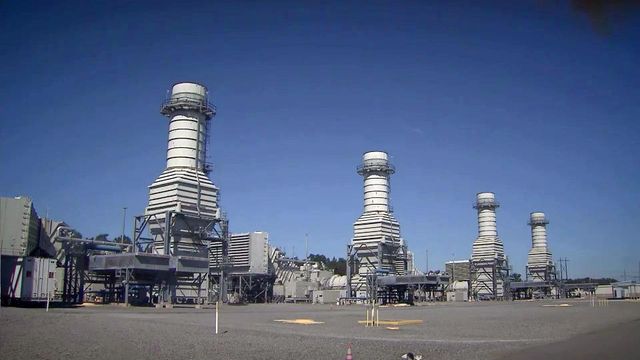Duke Energy: Controversial gas pipeline will lower NC power bills
A proposed natural gas pipeline has caused a lot of controversy among landowners and communities along the projected path, but Duke Energy officials said Tuesday that the pipeline will mean lower energy costs for North Carolina consumers.
Posted — UpdatedThe $5 billion Atlantic Coast Pipeline, which Duke, Piedmont Natural Gas and Dominion Energy want to build, would bring natural gas produced by hydraulic fracturing in Pennsylvania and West Virginia to power plants in Virginia and North Carolina. The partners have filed the paperwork for the necessary federal permits for the pipeline.
Duke Vice President Swati Daji, who buys fuel for power plants in six states, said Tuesday that natural gas used to be so expensive that it was used only to meet high demand.
"Since 2008, 2009, once we figured out this country has so much natural gas, our dependence on other sources of fuel has gone down," Daji said.
Duke now uses more natural gas than coal, retiring many of its older coal-fired power plants and replacing them with units that burn natural gas to power turbines.
At the H.F. Lee Energy Complex near Goldsboro, gas-fired units have been operating here since 2012, but the gas supply isn't enough to operate the whole plant economically.
When demand for gas goes up in cold weather, plant manger Rick Grant said generation actually declines. Only two of four units were running Tuesday.
Although natural gas produces 50 to 90 percent less smog-causing pollution, Grant said that, with only one pipeline in the western part of the state to supply it, prices can be unstable.
"We're expecting ACP to come in at considerably less than what we're paying now," he said. "It'd be firm gas – a more dependable supply and at a better cost for our customers."
Duke has a big stake in the pipeline project, but so do communities along the proposed path. Many are fighting it, citing safety concerns.
Daji said she thinks those worries are overstated.
"While nothing is riskless, we really feel very comfortable that there have been lots of improvements in terms of safety that one shouldn't be concerned about it," she said.
Some environmental groups also oppose the pipeline and to Duke's growing reliance on natural gas. They say the utility should focus on developing renewable energy sources instead.
Daji said the two aren't mutually exclusive, and Duke is working to diversify its portfolio across the board.
• Credits
Copyright 2024 by Capitol Broadcasting Company. All rights reserved. This material may not be published, broadcast, rewritten or redistributed.






